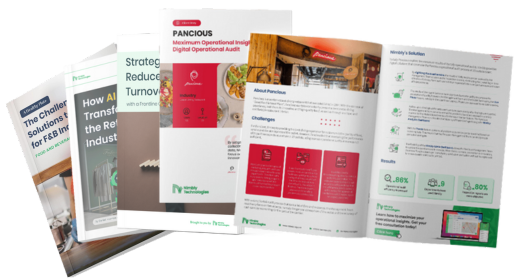

The food and beverage industry requires strong auditing and assessment to ensure safety. One of the required services for this purpose is HACCP Audit Plan. Since food safety is critical, businesses that earn HACCP certification can reap many benefits. What principles are included in the HACCP audit, and how can businesses gain from it?
Hazard Analysis Critical Control Points (HACCP) is a management system that ensures strong compliance with food safety regulations. It is a globally acknowledged system recognizing safety-compliant manufacturers, restaurants, and other food-related establishments.
A business that earns HACCP certification has undergone rigorous auditing, testing, and observation to prove its food safety compliance. A business must follow strict safety programs and prepare all the necessary documents to get this certification. Afterward, the business must go through HACCP Audit Plan to get the certificate.
A proper HACCP Audit Plan consists of seven basic principles. They are:
Hazard analysis is done to identify potential risks that can cause illness, injuries, and deaths. The analysis includes raw ingredients, equipment, packaging materials, locations, and transport systems.
Critical control points (CCP) analysis aims to find the right spot to reduce hazards to an acceptable level, ensuring food safety. Examples are activities such as product testing, chilling, and reheating.
Critical limits are related to critical control points, establishing a critical point measurement to determine the limit that makes hazards inevitable. Some points addressed in critical limits are moisture level, time, temperature, and many more.
Procedure monitoring is a process to make sure that CCP standards are fulfilled. The monitoring must include an immediate action plan to respond to deviations.
Before CCP analysis, businesses need to consider risk management aspects. They include creating corrective actions, which must be conducted following any deviations or problems detected in CCP.
Verification procedures are important to ensure the audit plan is executed properly. The validation process ensures proper advance and execution of every HACCP step. The establishment requires standardized rules and measurements that every employee can follow.
Every professional business plan needs proper documentation and record-keeping. All the documents and reports must contain vital information, such as every procedure, observation results, measurements, the people involved and their responsibilities, and many more. This stage also involves using modern documentation and record-keeping technology, like management software.

HACCP certification has a big role in business reputation and customer satisfaction. The certification shows the business’ commitment to providing the best products and services. Customer satisfaction can make or break a business, especially since food and beverage are highly competitive.
Securing the HACCP certificate also increases the level of trust from stakeholders and partners. It is important to secure the business's reputation and secure growth opportunities.
Finally, the HACCP certification process helps businesses reduce risk-related costs, such as in hazard handling and lawsuits. With a proper audit, you can quickly spot possible problems or defects and handle them, preventing risks of hazards.
You can only get a HACCP certificate from professional third-party services. To earn the certificate, you must create detailed plans to make sure that every aspect of your business follows the official safety and industry standards.
Business owners should invest in providing employees, staff, and managers with HACCP certification training. They specifically guide trainees toward similar goals and ensure the highest quality standard in their work. In the food industry, these courses may involve food hygiene and safety, good manufacturing practices, foodborne illnesses and cross-contaminations, critical point identifications, and such.
Using a management software system like Nimbly is one of the solutions for successful HACCP audits and certification. Features like a digital checklist and issue tracker help you list all the important audit tasks. You can also share the digital checklist with every manager and staff member and create real-time reports for documentation purposes.
Having a HACCP Audit Plan and Certification is important for business quality, reputation, and safety, especially in the food industry. Make sure to apply all the main principles, from hazard analysis to documentation, and earn the certificate to improve and develop your business.
